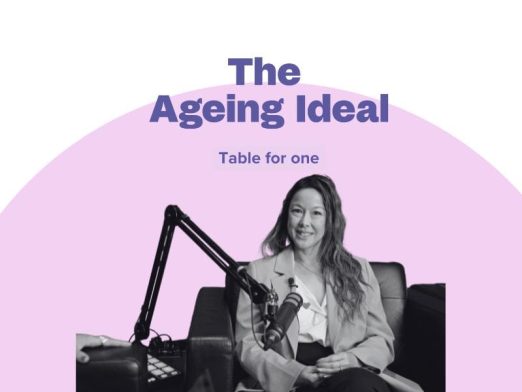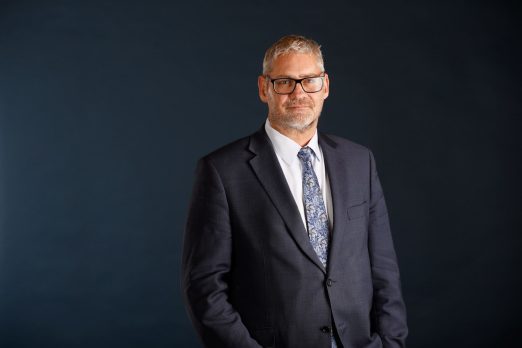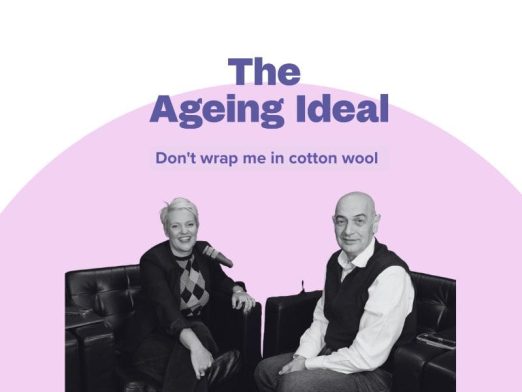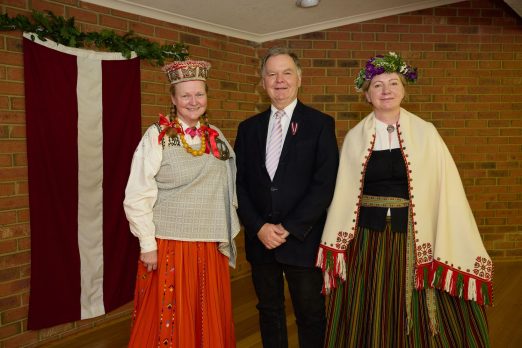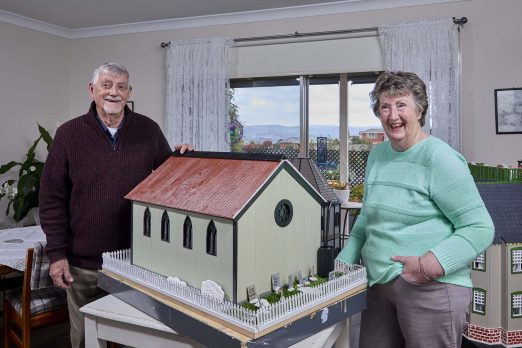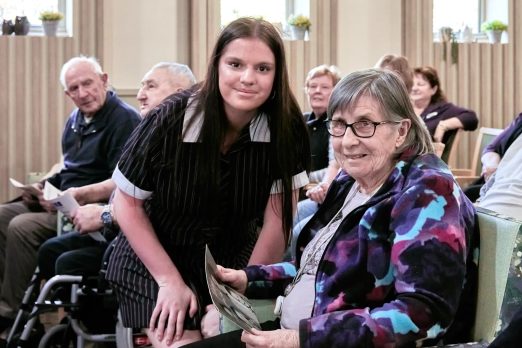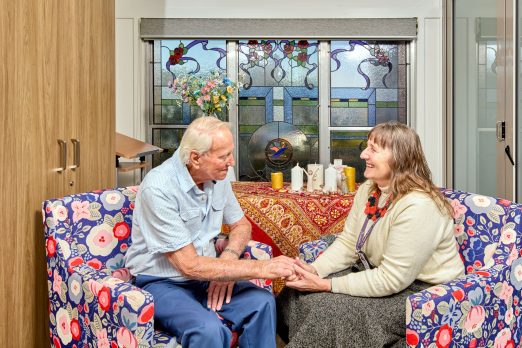News
Back to nurturing young minds
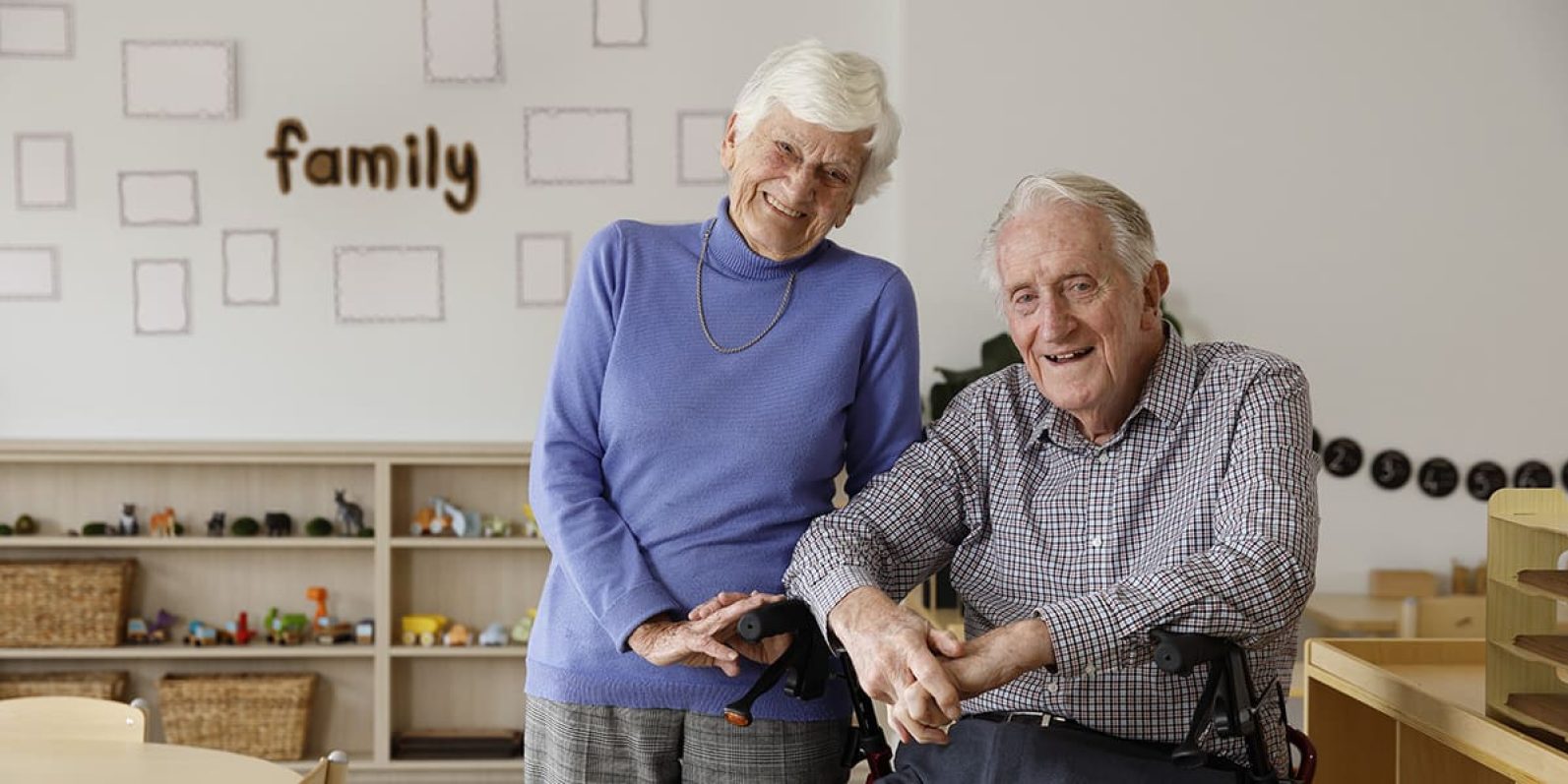
Residential Care
Rose and Barry Smith have never shied away from learning through new experiences.
And they’re feeling as excited as kids again spending time with the little ones at The Herd Intergenerational Learning Centre which is under the same roof as Uniting AgeWell Andrew Kerr Care residential care community where they live.
They were part of the official opening ceremony on March 3. A proud and poignant intergenerational moment when the couple, and two VIPs (very important little people) Isla Tierney and ShivOm Adhikari from The Herd ILC, cut the ribbon.
Already the centre, which has been operational since the start of the year and caters for 66 children from the ages of six weeks to school age, is bringing great benefits to young and old alike. Residents of the aged care facility, or “grand-friends” as the children fondly call them, regularly come together with the children to share scheduled activities, including art, music and storytelling. The residents can also visit a special lounge space whenever they want to watch the children play and there are opportunities for spontaneous interactions, like when the baby buggy spins around the home for a visit, bringing sunshine and smiles with them.
While there are scientific ways to calculate joy, there’s a new zest for life in the air that is best measured by the width of the residents’ smiles, the sparkle in their eyes and the increased volume of laughter as they swap stories about their time with the children.
“It is bringing a greater sense of community into our home and enjoyment that not only enriches the residents’ lives but that of the children,” says Barry, while Rose says simply, “Everyone brightens up when young ones are around.”
It’s the age-old concept of a village raising a child; the intergenerational approach where the young and the old learn from each other in a continuum of love and care that enriches the lives of both. Not only in the human but in the animal world. The Herd name pays homage to the respect that elephants have for elderly herd members.
Research shows intergenerational care can improve the quality of life of aged care residents,
reduce the risk of developing dementia and combat isolation and loneliness in older people, while children can also benefit, developing higher levels of empathy and social acceptance.
But you don’t need textbook knowledge to see this in action at the centre.
Rose, 89 and Barry, 88, have lived at the aged care facility for the last two years and couldn’t be happier with the new arrangement. “It makes you wish you had little children of your own again,” says Rose. Everyone brightens up when young ones are around.”
And while they have three children, eight grandchildren and four great-grandchildren, they have oodles of kindness, care and love to offer on little ones at the centre.
The couple, who have been married for 67 years, also know a thing or two about teaching!
They met at high school, where Barry acknowledges that Rose was the better student. He went on to become a schoolteacher in Victoria, and after teaching for three years he saw an advertisement in the newspaper looking for teachers in Papua New Guinea.
Rose, who was a qualified nurse working at The Alfred was initially very doubtful, she agreed, thinking she would get a position in a hospital there.
The couple were in for more of a challenge than they thought. They were based in the very remote Western Highlands province where there were no schools or hospitals.
Barry was asked to build a boarding school. “You’re looking at the world’s worst carpenter,” he laughs. He spaced out the building, explained where the windows and doors would go, and the locals built it. It would be one of 15 boarding schools he would later built in his time in PNG. And mostly built from native materials.
Rose’s dreams of working in a hospital ground to a halt. There was only one medical assistant who drove an ambulance in Australia and knew basic first aid. Any urgent medical cases were transferred to Goroka. But a lot of illnesses were treated according to village customs.
“It took a lot to get used to life there,” says Barry in what must qualify as the understatement of the century. There was no gas or electricity. And the highlands got very cold at night too.
Another problem was the language barrier – the school children didn’t know any English. Barry would communicate in Pidgin – a mixture of English, German and Dutch that is now a language in its own right – and an interpreter would translate to the children in their local dialect. Before long 90 children – all boys – were enrolled at the school. They were raised on a diet of mostly sweet potato done on the open fire. Barry introduced three meals a day at school, and the students flourished.
Rose says, everything had to be home cooked. There were no shops. Food would come by plane and you had to take what was available. A lot of it came from Brisbane to Port Moresby, Madang and everything was frozen. They would barter a lot of food with the locals. Rose says, “We didn’t even have pineapples or fish in the Highlands. Trying to work out meals was always very difficult for us.”
Barry also, almost rebuilt a rundown school in Milne Bay, ensuring the roof didn’t leak. He remains proud of setting up a co-ed boarding school for boys and girls. “It was very hard for girls to get education”.
The couple had three children in the 10 years they were in Papua New Guinea. Eventually they returned to Australia after 10 years of fulfilling and interesting work. They lived in Ballarat and moved to a unit in Frankston six years ago for extra support. Their son and daughter live in Mirboo North and Frankston South.
Rose still loves wandering around the supermarkets and marvelling at the choices of food available.
And Barry says, “Children in Australia are so lucky, they get food and a good education.”
And what are they going to teach the children at The Herd?
“Nothing!” says Barry. “They learn from us.”
Wise words from a wise teacher.
